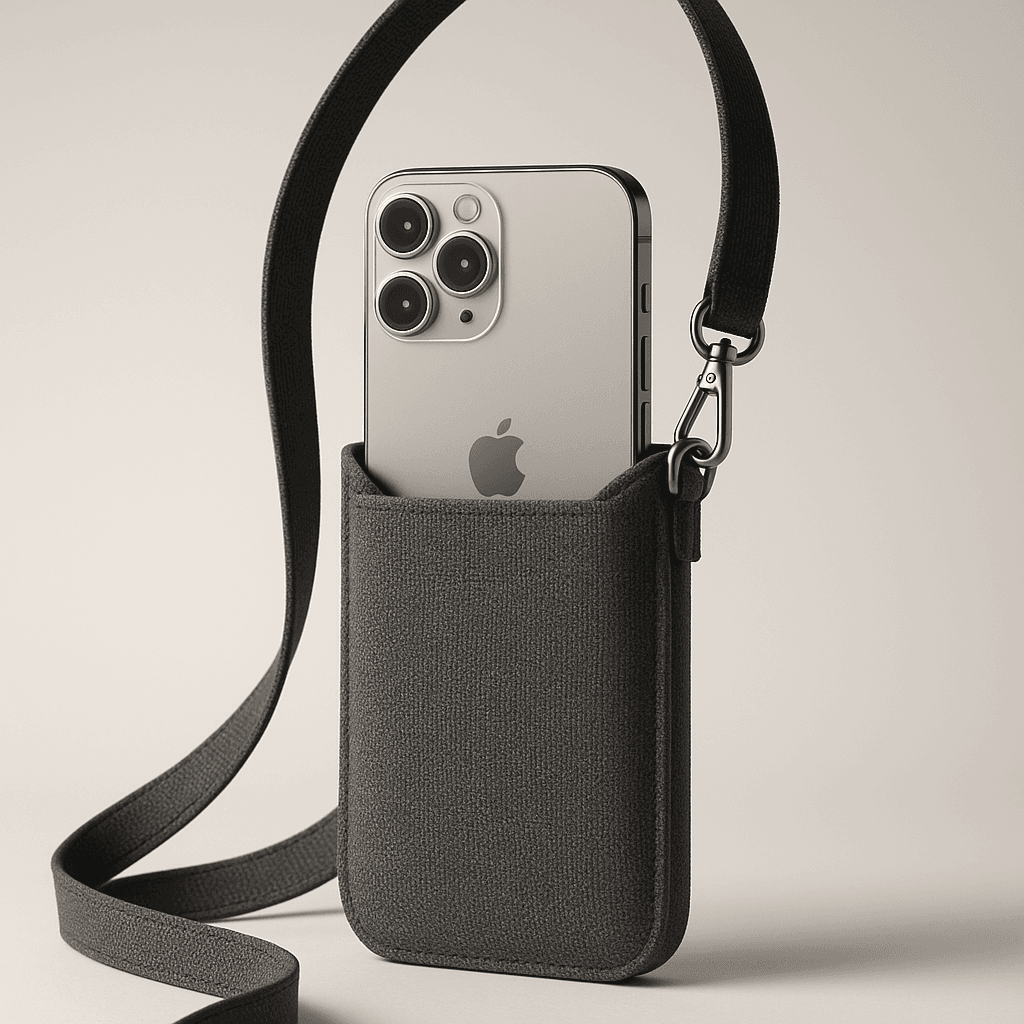Apple just dropped what might be its most polarizing accessory yet - the iPhone Pocket, a $230 cloth sling designed by legendary fashion house Issey Miyake. The limited edition "phone sock" has tech Twitter buzzing about whether luxury fashion belongs in the Apple ecosystem, especially when a shorter version costs $150 and the crossbody variant hits $230. What makes this collaboration fascinating isn't just the price tag, but the deep connection between Miyake and Apple's aesthetic DNA.
Apple just made fashion history with a collaboration that's been decades in the making. The iPhone Pocket, launching at $149.95 for the short version and $229.95 for the crossbody style, represents the first official partnership between Apple and Issey Miyake - the Japanese fashion house that literally shaped Steve Jobs' iconic look.
The timing couldn't be more perfect for luxury tech accessories. While critics are calling it an overpriced "phone sock," fashion insiders see something different entirely. The iPhone Pocket uses Miyake's revolutionary APOC ("a piece of cloth") technique, pioneered in 1997, which creates entire garments from single pieces of fabric with minimal waste.
"Featuring a ribbed mesh structure with the qualities of the original pleats by Issey Miyake, iPhone Pocket is a beautiful way to wear and carry iPhone," Apple explains on its product page. "When stretched, the open textile subtly reveals its contents and allows you to peek at your iPhone display."
The connection between Apple and Miyake runs deeper than most realize. In the 1990s, Jobs approached Miyake about creating uniforms for Apple employees after being inspired by similar programs at Sony in Japan. While Apple's team rejected the uniform concept, Jobs and Miyake developed a personal working relationship that resulted in Jobs' signature black turtleneck - a look that became synonymous with Apple's minimalist design philosophy.
This collaboration arrives as the phone accessory market explodes with unexpected hits. The short iPhone Pocket appears positioned to capitalize on the same psychological triggers that made Labubu keychains a billion-dollar phenomenon earlier this year. Like Labubu's $30 blind boxes that could resell for $10,000, the iPhone Pocket transforms a functional item into a statement piece.
"It's accessories for your accessories," notes one fashion analyst, pointing to broader trends like miniature Trader Joe's bags and tiny Telfar crossbodies. The phenomenon reflects how smartphones have become the new handbag - with Tap to Pay technology and digital wallets, many consumers leave home with just their phone.












